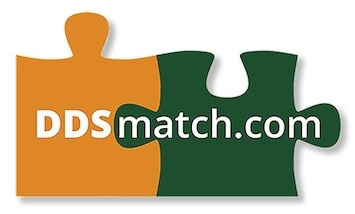Dentistry faces forces and trends as the profession continues an evolution that started well before the pandemic. Traditionally, when a dentist decided to retire after 30-40 years, the model didn’t vary much: a younger dentist would purchase an established practice. But the Dental Service Organization (DSO) movement has been one of the most significant changes over the last few years. As dental practices seek more efficient ways to manage their operations and make profitable exits, DSOs have become another solution.
As 2023 continues, the dental DSO market is expected to continue growing as more practices seek to partner with DSOs. As the industry matures, new players are likely to enter the market, and established DSOs will expand their services to meet the changing needs of the dental industry. DDSmatch has helped over 100 practices partner with DSOs, and we know the players, winning deal structures, and how to maximize value for our clients.
What Is A DSO?
DSOs are companies that own and operate multiple dental practices and provide services such as administrative support, marketing, and purchasing. They aim to improve efficiency and profitability with centralized operations and standardized systems across locations.
DSOs usually purchase a practice and take over ownership through an arrangement that includes an “earn-out” agreement. For example, the buyer may pay 60% of the purchase upfront, but the seller stays as an employee for 3-5 years to capture the rest of the price. The DSO owns the practice and controls the business and financial operations, and the dentist usually continues working in the practice until the end of the agreement period.
The expansion of DSOs hasn’t been without warnings throughout the profession; some dentists and patients are concerned about the impact on the quality of dental care. But DSOs argue that they are improving access to care and providing quality services to patients. Regardless of the stance, the number of DSOs in the U.S. has grown from about 100 in 2010 to over 2,000 in 2023. This market segment is expected to grow at a compound annual growth rate (CAGR) of 15.8% from 2023 to 2030.
With the expanding demand for dental care, DSOs are in a favorable position to capitalize on this trend. They can attract and train dentists while also providing cost-effective dental services. Furthermore, DSOs offer various advantages to dentists, such as financial stability, support, and access to technology. This makes DSOs appealing to dentists seeking to sell their practices or retire. But the process demands due diligence, and DDSmatch knows how to guide sellers along the best path.
Why Are DSOs Growing?
DSO growth is fueled by various factors, such as the rising demand for dental care, scarcity of dentists interested in ownership, and aging demographics. Dental care services are projected to grow 4.5% annually from 2022 to 2030; that’s faster than the average for all occupations, estimated to expand at 3.9%.
However, the main driver for DSO market share is private equity investment. The dental industry has shown consistent revenue growth over the last two decades with high profitability levels in a fragmented market. This strength allows investors to consolidate and optimize practices while benefiting from economies of scale. Additionally, numerous practice owners are willing sellers and looking for liquidity and business support. Demand for dental services remains relatively resistant to economic changes, as evidenced by the industry’s recovery after the COVID-19 pandemic.
According to a report from the American Dental Association, dental practice sales in the U.S. reached $29.3 billion in 2022, marking an 11% increase from the previous year. The report also revealed that the average sale price for a dental practice was $1.5 million. This increase is attributed to the tendency for DSOs to offer higher prices compared to independent buyers.
Most dental practice sales are made by independent dentists looking to retire or scale back their practices, and this trend will likely continue. As more dentists consider their exit planning options, the dental DSO market is expected to grow and consolidate, with DSOs targeting more specialty and multi-practitioner enterprises. However, the market’s future is still being determined, and dentists may become more resistant to the DSO model, and dentists’ reluctance could lead to a more fragmented market.
Regardless of where the market goes, dentists who focus on exceptional operations, marketing, and financial management will have options to create an exit strategy on their terms.
To DSO Or No?
A dentist considering a DSO deal needs to weigh the pros and cons and choose the path that makes the most sense. Every DSO differs, and an agreement’s terms dramatically affect the outcome.
Here are a few to consider and discuss with a practice transition specialist:
Pros:
- Financial stability: DSOs provide dentists with a stable income, which can be an advantage over independent dentists who may experience fluctuations in their income. A seller will also get part of the practice value up-front, but usually not all of it.
- Support: DSOs provide their dentists with administrative and marketing support, freeing time for dentists to focus on patient care.
- Access to technology: DSOs often have access to the latest dental technology, which can help dentists provide their patients with the best possible care.
- Retirement: DSOs are willing to pay a premium for practices, which can provide a significant retirement income for dentists who have time to complete the earn-out process.
- Lack of succession plan: If a dentist does not have a plan for their practice after retirement, selling to a DSO can ensure that the practice continues to operate.
Cons:
- Loss of autonomy: Selling to a DSO means that a dentist will lose control over the day-to-day operations of their practice.
- Changes in patient care: DSOs may implement changes to patient care that a dentist may disagree with, which can lead to frustration and dissatisfaction.
- Culture clash: The culture of a DSO may not align with a dentist’s practice culture, which can lead to conflicts and challenges.
- Staff turnover: When a practice is sold to a DSO, staff turnover may lead to instability and a loss of continuity in patient care.
- Potential for reduced income: While DSOs may provide a stable wage, they may also require a dentist to work longer hours and see more patients, leading to burnout and reduced income.
Overall, the decision to sell a dental practice to a DSO is a personal one, and it is essential for dentists to carefully weigh the pros and cons before deciding. The right decision can set a seller up for a comfortable retirement, but the wrong choice can lead to frustration and unrealized profits.
What About An Unsolicited DSO Offer?
Dentists with reputable, profitable practices are often surprised to receive an unexpected offer from a DSO. It can seem tempting, but it’s rarely tipped in your favor. Our best advice? Don’t accept it without representation. It’s essential to have a professional review of the deal’s structure to protect your best interests. If you work with DDSmatch, you have resources on your side that are familiar with the possible outcomes and pitfalls. You don’t have to navigate the DSO landscape alone.
The DSO Option And You
As the demand for dental care continues to rise, the market for dental practice sales is expected to grow even further. DSOs are likely to expand their operations and acquire more dental practices. In fact, DSOs are already targeting specialty and multi-practitioner enterprises as their plans evolve.
While the future of the dental DSO market is uncertain, DSOs have become a dominant force in the dental industry. This strength shows through the 20x increase in DSOs over the last few years. However, there is also a possibility that the market will become more fragmented as dentists become more resistant to the DSO model.
Regardless of where the market goes from here, dentists who commit to exceptional operations, marketing, and financial management have more options to create an exit strategy on their terms. At DDSmatch, we help dentists evaluate the options, negotiate favorable DSO deals, and capture the practice value they deserve. If you’d like to discuss the possibilities available to you, your practice, your patients, and your staff, reach out and start the conversation today!

